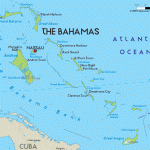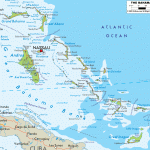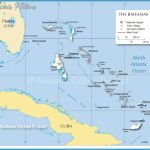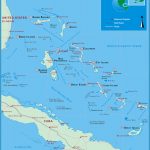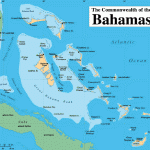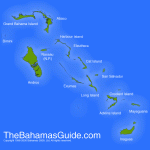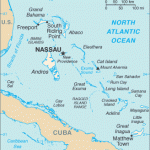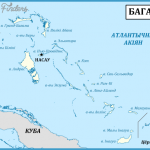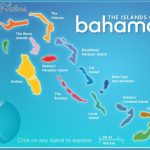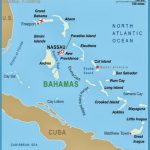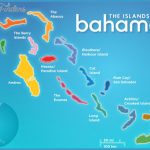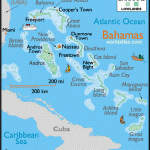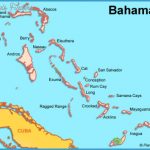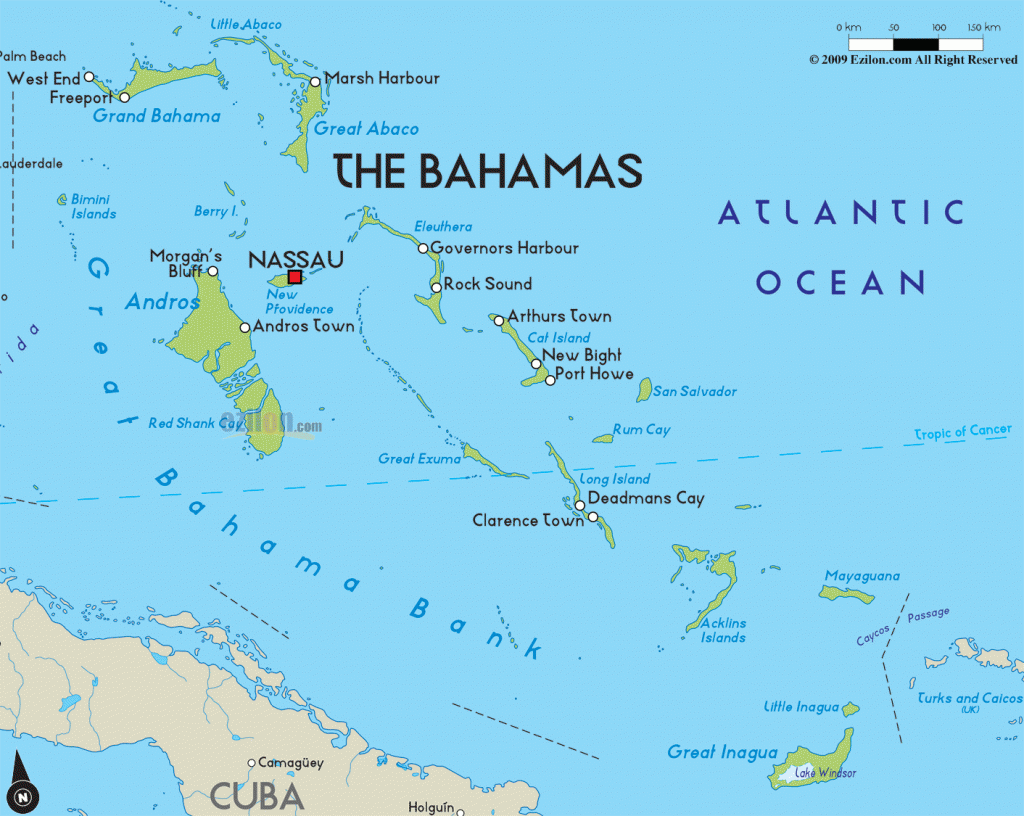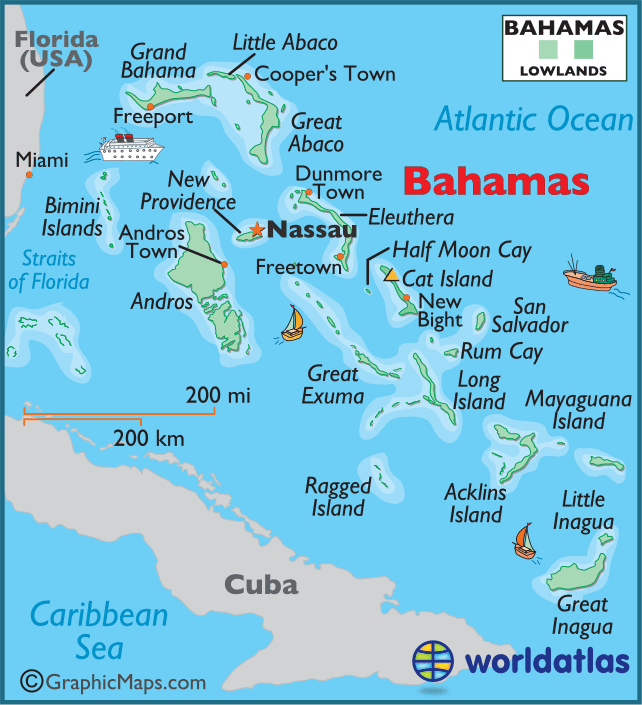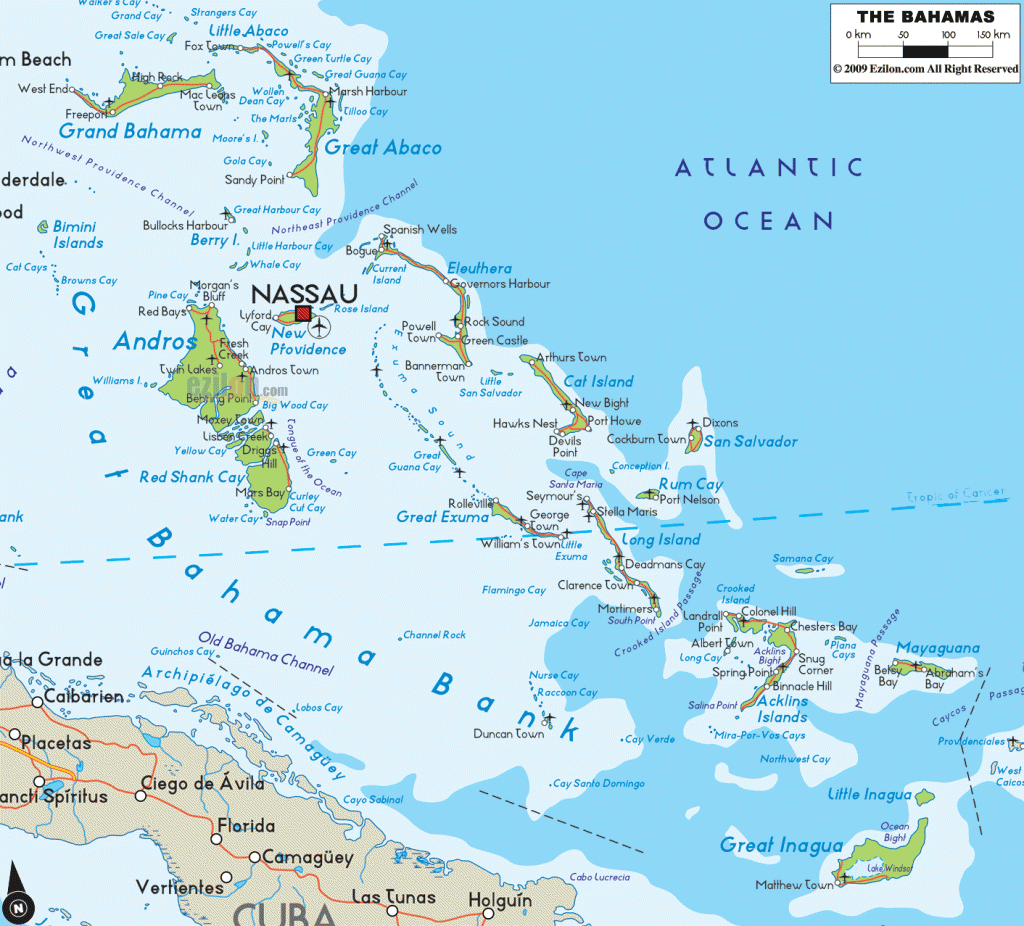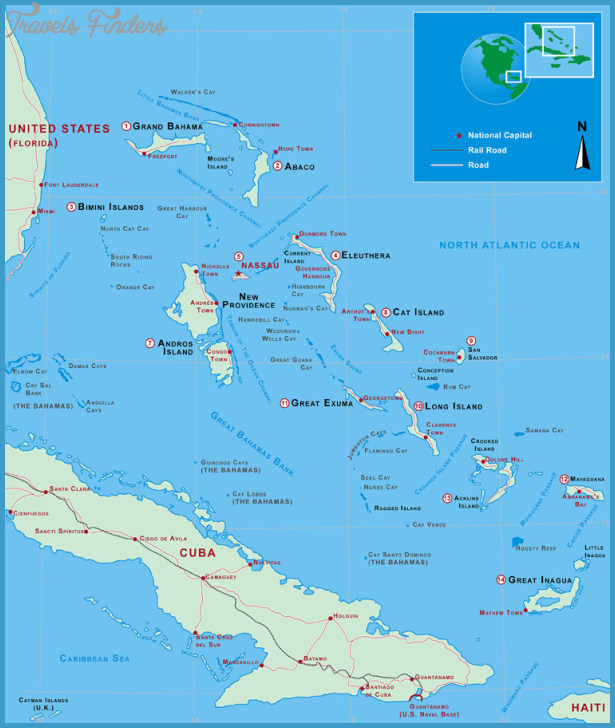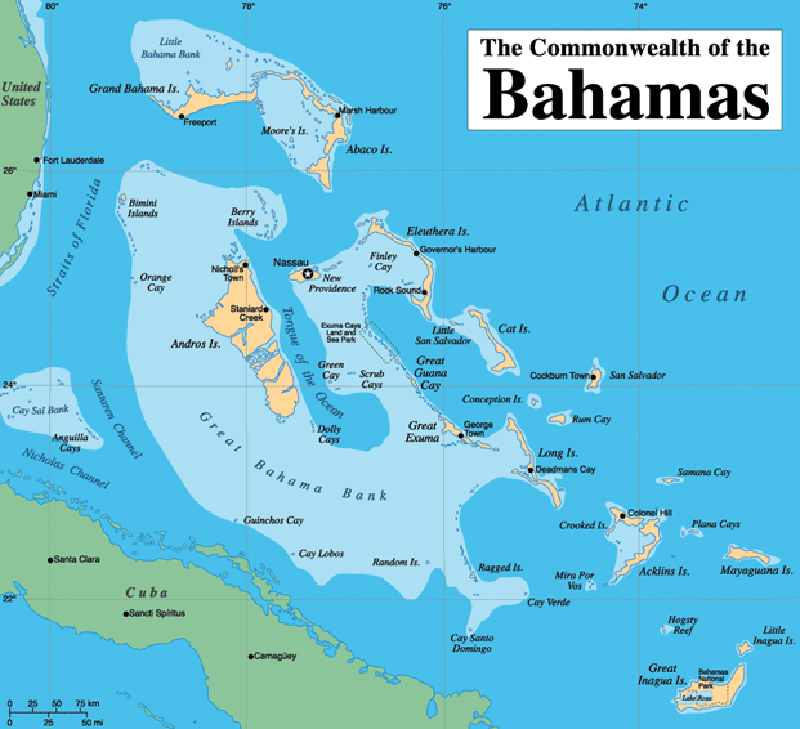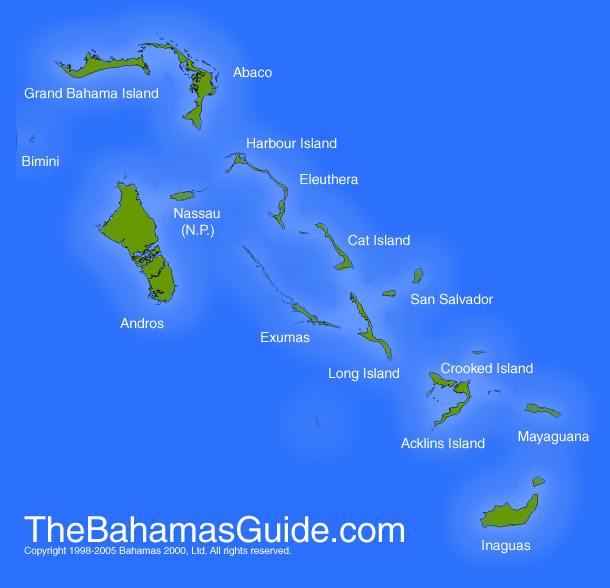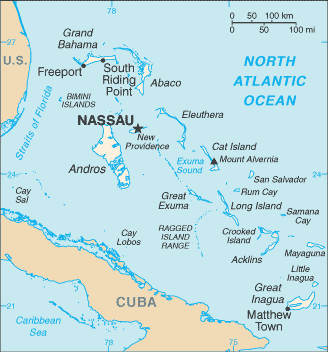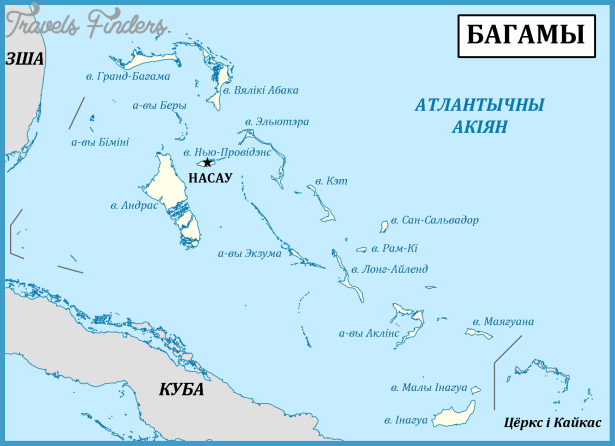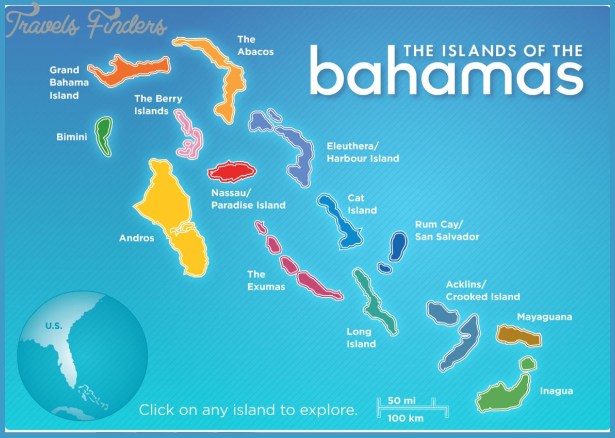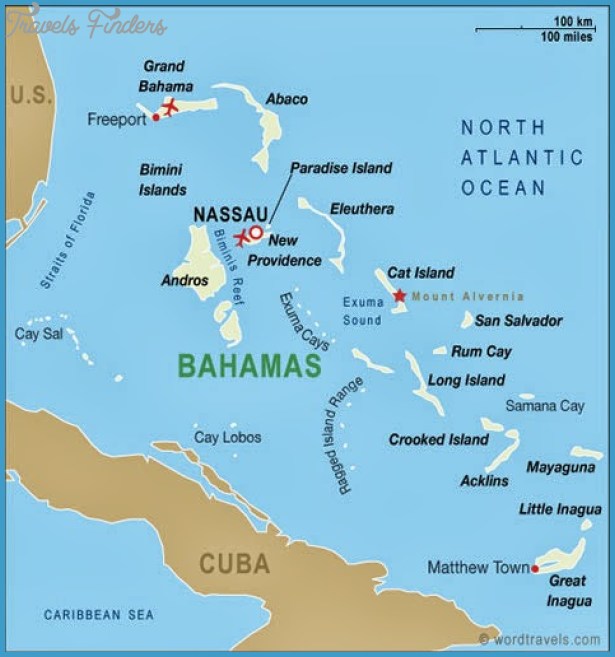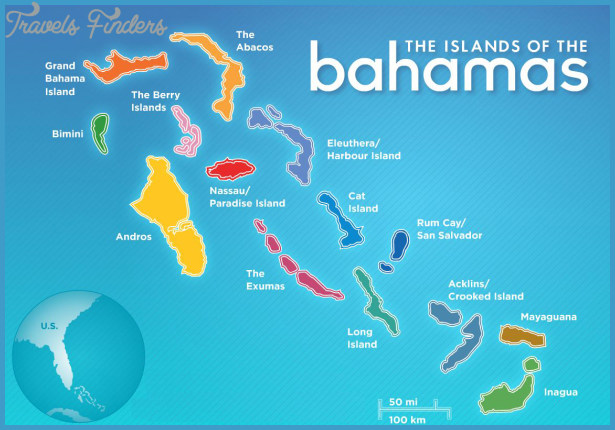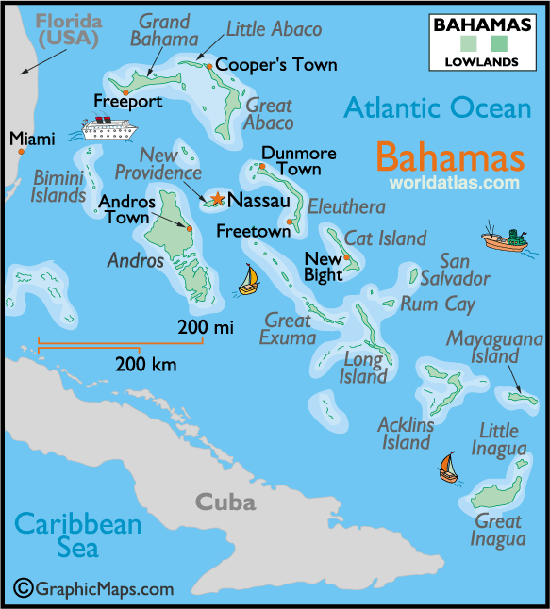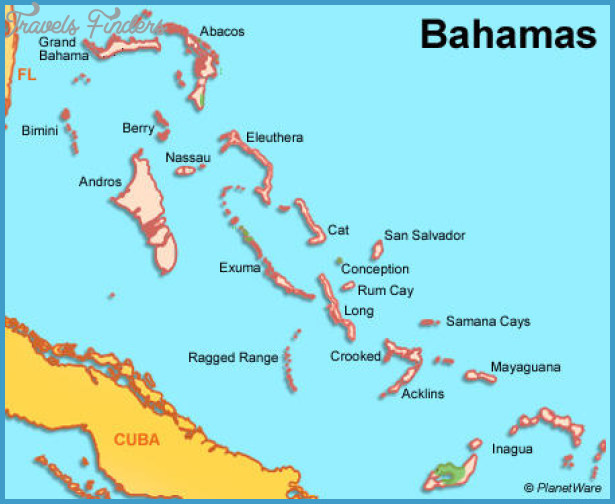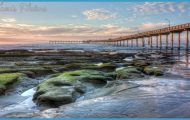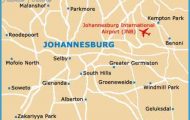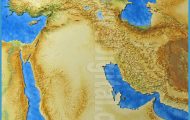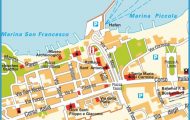The island of Eleuthera typifies the Family Islands. Flying over Eleuthera at ten thousand feet it is seen as a long, skinny strip of land hooked at both ends and so narrow at the upper end that the oceans come together and pass under a bridge. Translucent waters that change colors with the light provide the charm. Populated since 1648, initially by a group calling themselves The Eleutheran Adventurers, from Bermuda, it has been a base for ship-wreckers, pirates and for a brief time, cotton plantation owners. Today the base is tourism, small farming, fishing and the collecting of spiny lobsters, called crawfish.
Accommodations range from small motel-cottage colonies to what were private clubs of the elite and homes of the ultrawealthy. The Cotton Bay Club was one of the deluxe private clubs. It is now open to the public. Much of the development of South Eleuthera was the brain child of the aluminum tycoon, Arthur Vining Davis, who, it is said, helicoptered over the area pointing to sites he wanted to buy and develop. Two of his grand homes can be enjoyed at relatively modest rates. Rock Sound Club, near Rock Sound airport, was his principal island residence. Winding Bay Beach was his deluxe beach cottage; there the dining room, a place of quiet luxury, overlooks a private cove.
The Cape Eleuthera Resort at the south end of the island occupies six thousand acres and has accommodations for three hundred persons. With its own airstrip, visitors are chartered in from as far away as Colorado and Seattle. Many of the guests are members of travel clubs like the Atlanta Skylarks and the Jet Set of Seattle. With Club Med farther north, Cape Eleuthera is the largest of the Eleutheran resorts. Sailing off to a nearby cay, the guest can spear and barbecue fish that circle the cays in abundance. The divemaster supplies the resort with all of its fish. Diving is a major sport with one hundred scuba tanks and four dive boats on hand to take the daring off to spots which drop off to depths of twelve hundred feet. Attesting to the problems encountered in developing such a resort is the fact that 288 wells were drilled to meet the water demand.
Eleutherans seem uniformly friendly to visitors, waving to each passing car and ready to converse when approached.
Three little Bahamian islands are of special ethnographic interest: Spanish Wells, Man O War Cay, and Elbow Cay. They contain all-white communities left over from the time of the American Revolution, when their Tory forebears left the United States and settled in the Bahamas.

